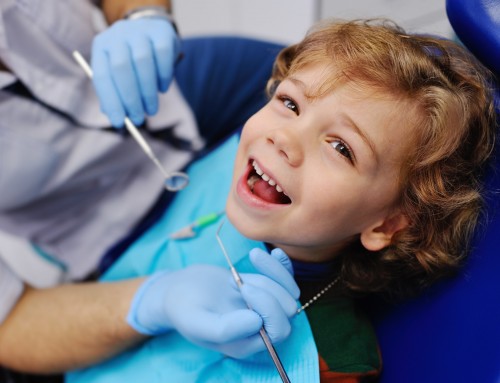The typical American diet is made up of 55% carbohydrates. This increase in carbohydrates is considered part of the increase in obesity, diabetes, and other metabolic issues.
These statistics have led to the increased popularity of the ketogenic diet or keto diet. This diet that promotes fats and proteins over carbohydrates has gained attention in mainstream medical circles recently as more doctors consider this diet for their patients.
Is the keto diet really a good idea though? If you’re considering adopting this diet option, it’s important to know the keto diet pros and cons. Any new diet needs thorough research before jumping in.
What is the Keto Diet?
The keto diet is a low-carbohydrate, high-fat and protein diet option. With a keto diet, people regulate their carb intake to no more than 35 grams per day. The idea is to receive 60% of your calories from fat, 35% of calories from protein, and 5% of calories from carbs.
This distribution of calories is meant to promote a state of ketosis in the body. Ketosis is when the body receives energy primarily through burning the body’s fat stores. By removing the glucose levels provided by carbs, you force your body into this state of ketosis.
The Keto Diet Pros and Cons
As with any diet, the keto diet has its pros and cons. Any time you plan to make major changes to the foods you eat you need to understand the effects the changes have on your body.
The Pros of a Keto Diet
With its rise in popularity, the keto diet has undergone many studies. These studies have shown some benefits for certain groups of people.
Help with Weight Loss
People trying to lose weight may see some short-term benefits from a keto diet. A study published in the National Library of Medicine showed 13% weight loss for subjects over an eight-week period.
These results are associated with a higher protein intake than traditional American diets. These higher protein levels help you feel full longer, cutting down on the amount of food you eat through the day. Protein also helps repair muscles which can help build up muscle mass over fat mass.
The higher fat intake also helps with weight loss. Eating healthy fats can help balance glucose levels in the body. This cuts down on the amount of stored fat.
The keto diet also helps your body burn more calories. The combination of protein and fat help keep the calories burning, even during inactivity.
Reduce Signs of Aging
One of the hardest parts of aging is the increased wrinkles. Keto friendly foods can help reduce these signs of aging.
Foods high in fat such as nuts and seeds help increase fatty acids. This strengthens the cells in your body so they don’t break down as quickly.
Other leafy greens and antioxidant-rich foods included with a keto diet help kill off free radicals that damage your skin. This keeps your skin looking younger longer.
Reduce Cholesterol and Hypertension
A keto diet can also help with people dealing with high blood pressure or high cholesterol. The diet helps decrease plaque in the arteries which contributes to these health risks. You can find more information from this source.
By reducing cholesterol and hypertension, the keto diet can also increase heart health. Proteins and fats are known to strengthen the heart. Food such as fish, nuts, and avocados are useful to keep your heart healthy longer.
Decrease Insulin Resistance
A keto diet decreases the level of glucose in your body. When on the keto diet you cut out sugary foods that can overwork insulin in your system.
The keto diet also helps regulate hormones, such as insulin, so they’re working more efficiently. People with insulin issues may find relief with the removal of sugar and the increase of healthy fats.
The Cons of a Keto Diet
Before you run out to stock up on avocados, make sure you know the cons associated with the keto diet. Make sure you understand all your options.
Requires Medical Advice
One mistake people make when changing their diet is to do so without medical advice. If you want to make major changes, make sure you have a doctor monitoring your health.
With the keto diet, you should watch out for issues such as ketoacidosis. If you stay on the keto diet too long, you could cause high-acid levels in your blood. If this isn’t monitored you could end up hospitalized trying to reduce the damage.
Gastrointestinal Issues in the Early Stages
As your body adjusts to the keto diet, you could experience GI issues. Diarrhea or constipation are both possibilities in these early stages. Nausea is also common.
Make sure you understand your dietary needs before starting. Sticking to the diet properly can help reduce these symptoms.
May Cause Sluggishness
Your brain relies on glucose to function properly. The keto diet removes a large portion of your sugar intake to create ketosis. The lower sugar levels can decrease brain function, especially in the early stages.
Difficult in Social Situations
People rely on carbs in their daily diets. This makes the keto diet difficult in social situations. This diet makes it more important to know what you can eat.
Finding foods you can eat at restaurants or during parties can prove difficult on the keto diet. This can make for awkward interactions in these settings, especially if people around you aren’t supportive of your diet.
The keto diet requires significant food changes. It eliminates a large portion of foods from your diet. This can prove difficult in these situations if you don’t know how to regulate yourself.
Help Making Diet Changes
If you’re interested in starting a keto diet, make sure you talk to your doctor first. Do your research to discover other keto diet pros and cons before getting started as well.
Are you still unsure? Check out our full list of health tips. Make sure you pick the best diet and health options to fit your needs.











